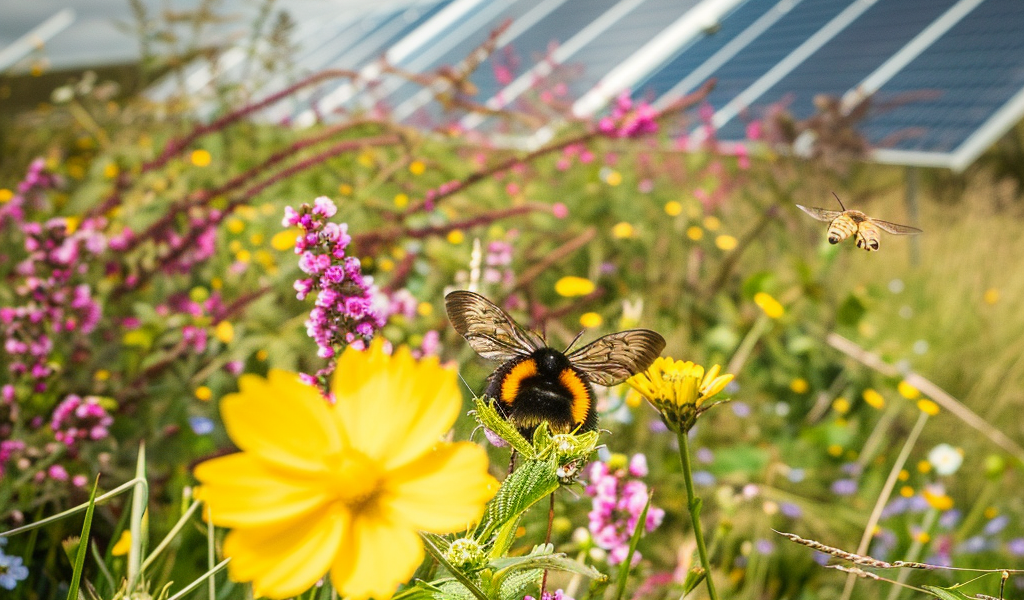After the cloudy and wet winter, it may seem surprising that solar farms are becoming an increasing fixture in the British landscape. The low cost of solar electricity production, coupled with battery storage, is clearly commercially viable. But it is also controversial, with some objecting to the loss of potential food production and alleging damage to the character of the countryside.
One unlooked-for benefit is for bees, butterflies, moths and hoverflies, all species that are otherwise rapidly disappearing from our countryside. Field data from 15 sites in 2021 showed that pollinating insects thrived in solar parks, particularly where a variety of plants have been allowed to flourish or been planted underneath and around the panels.
Perhaps a surprising finding was that solar parks set among fields where hedgerows and other habitats had been destroyed by farmers were the most beneficial for insects, providing an oasis of food and nectar unobtainable elsewhere.
It is one of the clear examples of where the problems of climate change and loss of biodiversity in our impoverished landscape can be tackled together. Solar developers taking the time and trouble to plant a variety of native food plants for butterflies, bees and once common insects would bring back much-needed diversity to the countryside.





